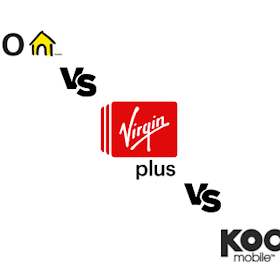
Microsoft could be bringing some of its trademarked games to both Android and iOS sometime during 2013, according to report from Reuters.
So far only Microsoft’s famous, if borderline-antiquated, Age of Empires title has been specifically named. There is no mention as yet of possible Xbox Live integration or cross-platform support for upcoming or even semi-recent games.
Whether true or not it certainly makes sense. Microsoft Studios, Microsoft’s video game production wing, has a massive back-catalogue of incredibly popular old-school games.
Other potential titles
Microsoft Studios may not be known for making games per se, but many a gamer may be surprised to know how many development companies are owned by this industry giant. Lionhead Studios, makers of the incredibly popular Fable series, as well as the multi-faceted Black & White, is one such name that springs to mind.
A quick Wiki of other developers that hold notable older games under Microsoft Studios reveals:
- 4J Studios: Banjo-Kazooie, Banjo-Tooie, Perfect Dark
- Blueside: Kingdom Under Fire (whole series)
- Hidden Path Entertainment: Defense Grid: The Awakening
- SouthEnd Entertainment: Lode Runner 2009
There are many more titles, such as Too Human, but like this 2008 game most are still likely a year or two beyond the capabilities of viable smartphone play.
While said games may seem two-dimensional and graphically unimpressive to a modern PC or console gaming enthusiast, there’s no reason that many of them wouldn’t appeal to the casual mobile gamer. In fact, many a ‘hardcore’ gamer could be swayed to download older titles to their gadgets if only to embrace a touch of nostalgia while they’re out and about.
Modern high-end smartphones are far more powerful than the machines that Age of Empires was originally designed to run on. The main obstacle that a dev team would face would be creating a new style of user interface that could be easily controlled via touchscreen, rather than keyboard and mouse. Microsoft essentially has a large list of pre-made games that just need some porting and interface redesign and presto; they’re ready for a comeback on the casual market.
Less platform dependency, please
Observers of the tech market will know that, as of a few years ago, options started to get a little more limited in terms of rocking a multi-branded tech style. Simply, it became a bad idea to own an Android tablet, Apple iPhone and Microsoft computer and instead better to go with a single OS or brand across as many devices as possible.
The price came with benefits, such as broader and more unified ecosystems with great potential for cross-device syncing of apps, games, media and data. It is, however, still a damned nuisance.
Google struck a massive blow to this kind of business structure at its recent 2013 I/O conference, where it announced availability for a huge number of its newest products on Android, Windows, MacOSX and iOS. The idea here being that, while Google may not have been the first to release certain services, being able to host free conversations between groups of friends who, by an almost definite degree of certainty, will not all own the same brand of gadgets.
Listen up, Microsoft
Microsoft would be wise to follow in Google’s footsteps here. With little investment required to get these titles off the ground and in to the hands of casual gamers, there’d be no reason for them to be Windows Phone exclusives. MSFT stands to make more profit from a larger audience while potentially getting its branding out to the younger generation of users who’ve only ever really known Android and Apple.
In the meantime we don’t expect to see any new titles or Xbox Live coming to Android or iOS. Windows Phone is still struggling in many markets and opening up one of its biggest draw cards – its gaming service and catalogue – would mean removing one of the few trump cards that Microsoft currently holds.
Related Articles
Find Better Phones and Plans
Hundreds of cell phone plans unpacked. All the facts. No surprises.








































